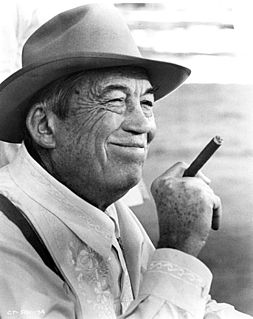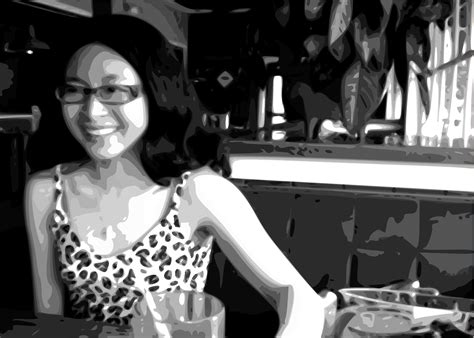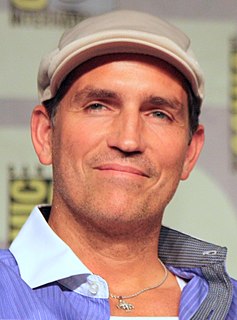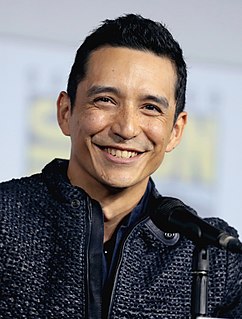A Quote by Giordano Bruno
There is one simple Divinity found in all things, one fecund Nature, preserving mother of the universe insofar as she diversely communicates herself, casts her light into diverse subjects, and assumes various names.
Related Quotes
Divinity reveals herself in all things. Everything has Divinity latent within itself. For she enfolds and imparts herself even unto the smallest beings, and from the smallest beings, according to their capacity. Without her presence nothing would have being, because she is the essence of the existence of the first unto the last being.
She went right down into her own personal experience for everything, reached down and pulled something out of herself that was unique and extraordinary. She had no techniques. It was all the truth, it was only Marilyn. But it was Marilyn, plus. She found things, found things about womankind in herself.
Man is the namer; by this we recognize that through him pure language speaks. All nature, insofar as it communicates itself, communicates itself in language, and so finally in man. Hence, he is the lord of nature and can give names to things. Only through the linguistic being of things can he get beyond himself and attain knowledge of them-in the name. God's creation is completed when things receive their names from man, from whom in name language alone speaks.
I found her lying on her stomach, her hind legs stretched out straight, and her front feet folded back under her chest. She had laid her head on his grave. I saw the trail where she had dragged herself through the leaves. The way she lay there, I thought she was alive. I called her name. She made no movement. With the last ounce of strength in her body, she had dragged herself to the grave of Old Dan.
Poesy is a beauteous damsel, chaste, honourable, discreet, witty, retired, and who keeps herself within the limits of propriety. She is a friend of solitude; fountains entertain her, meadows console her, woods free her from ennui, flowers delight her; in short, she gives pleasure and instruction to all with whom she communicates.
The universal nature has no external space; but the wondrous part of her art is that though she has circumscribed herself, everything which is within her which appears to decay and to grow old and to be useless she changes into herself, and again makes other new things from these very same, so that she requires neither substance from without nor wants a place into which she may cast that which decays. She is content then with her own space, and her own matter, and her own art.
Lastly, she pictured to herself how this same little sister of hers would, in the after-time, be herself a grown woman; and how she would keep, through all her riper years, the simple and loving heart of her childhood: and how she would gather about her other little children, and make their eyes bright and eager with many a strange tale, perhaps even with the dream of Wonderland of long ago: and how she would feel with all their simple sorrows, and find a pleasure in all their simple joys, remembering her own child-life, and the happy summer days.






































